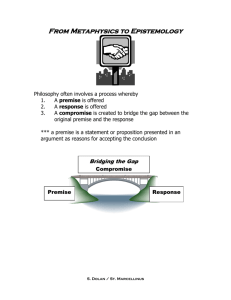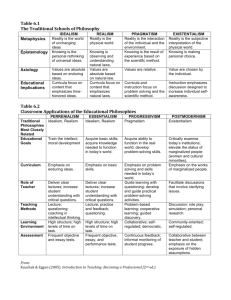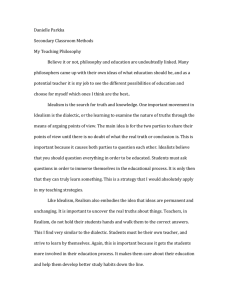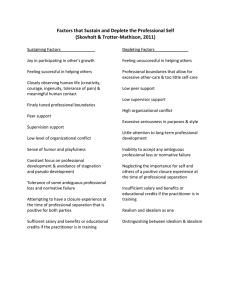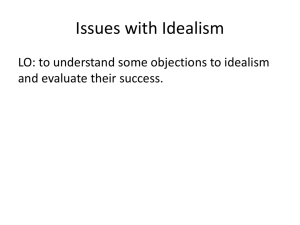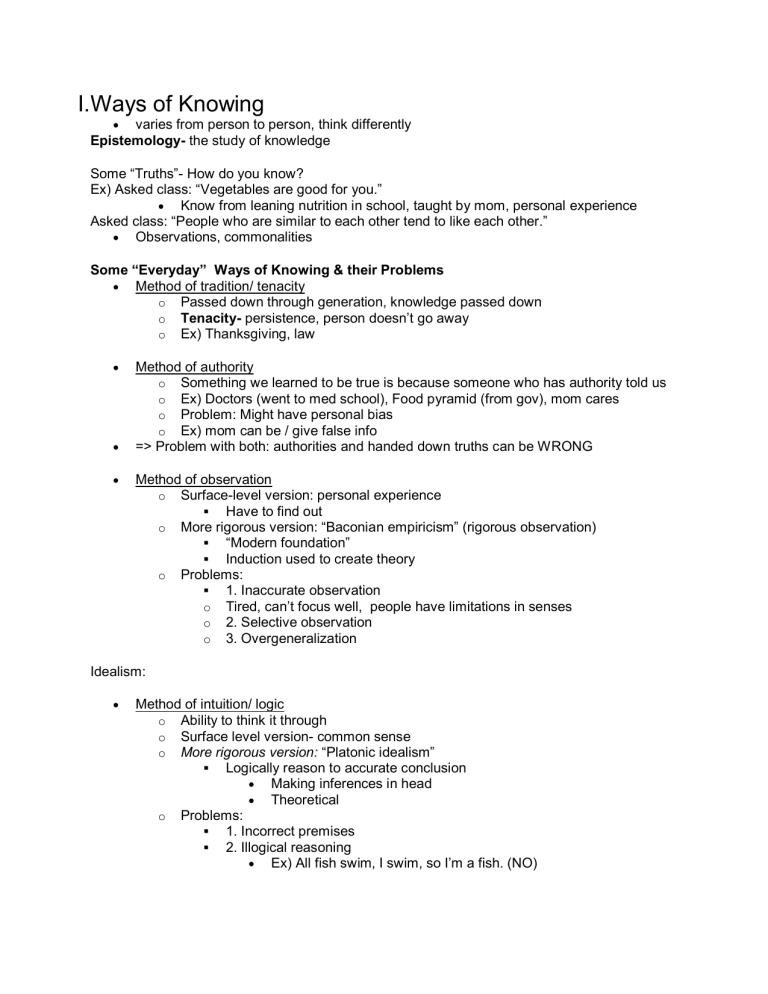
I.Ways of Knowing • varies from person to person, think differently Epistemology- the study of knowledge Some “Truths”- How do you know? Ex) Asked class: “Vegetables are good for you.” • Know from leaning nutrition in school, taught by mom, personal experience Asked class: “People who are similar to each other tend to like each other.” • Observations, commonalities Some “Everyday” Ways of Knowing & their Problems • Method of tradition/ tenacity o Passed down through generation, knowledge passed down o Tenacity- persistence, person doesn’t go away o Ex) Thanksgiving, law • • • Method of authority o Something we learned to be true is because someone who has authority told us o Ex) Doctors (went to med school), Food pyramid (from gov), mom cares o Problem: Might have personal bias o Ex) mom can be / give false info => Problem with both: authorities and handed down truths can be WRONG Method of observation o Surface-level version: personal experience ▪ Have to find out o More rigorous version: “Baconian empiricism” (rigorous observation) ▪ “Modern foundation” ▪ Induction used to create theory o Problems: ▪ 1. Inaccurate observation o Tired, can’t focus well, people have limitations in senses o 2. Selective observation o 3. Overgeneralization Idealism: • Method of intuition/ logic o Ability to think it through o Surface level version- common sense o More rigorous version: “Platonic idealism” ▪ Logically reason to accurate conclusion • Making inferences in head • Theoretical o Problems: ▪ 1. Incorrect premises ▪ 2. Illogical reasoning • Ex) All fish swim, I swim, so I’m a fish. (NO) • =>”Everyday ways of knowing” can even lead to conflicting ideas about the “truth” • Comm Example: Long distance relationships o “Absence makes the heart grow fonder” or “out of sight, out of mind” ▪ Absence is to love what wind is to fire; it extinguishes the small, it inflames the great.” -Bussy Rabutin The Scientific Method • Combines “platonic idealism” with “baconian empiricism” (rigorous observation) o Logic intuition (related to “platonic idealism”) -> constructing theories o Observation (related to “baconian empiricism”) -> gathering data • Communication Science- Use empirical observations to test theories about comm processes Unique Characteristics of Science (How is “science” different from the other “everyday” ways of knowing?”) • Scientific research is public o Published in peer-reviewed journals o Opportunity to replicate studies ▪ Will have more confidence

